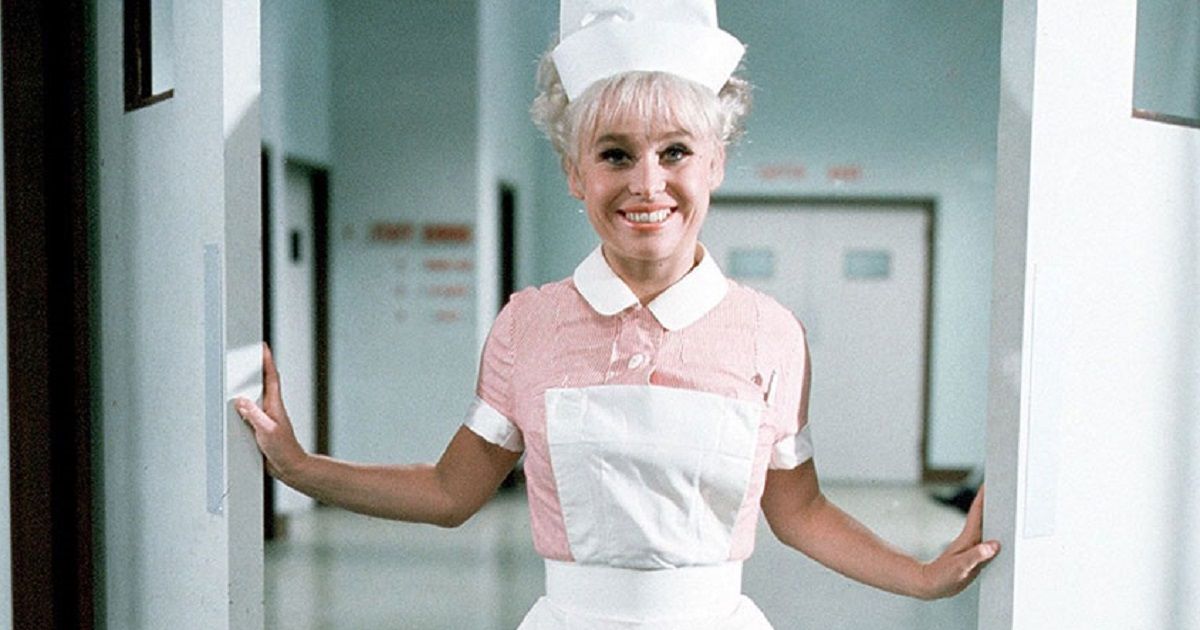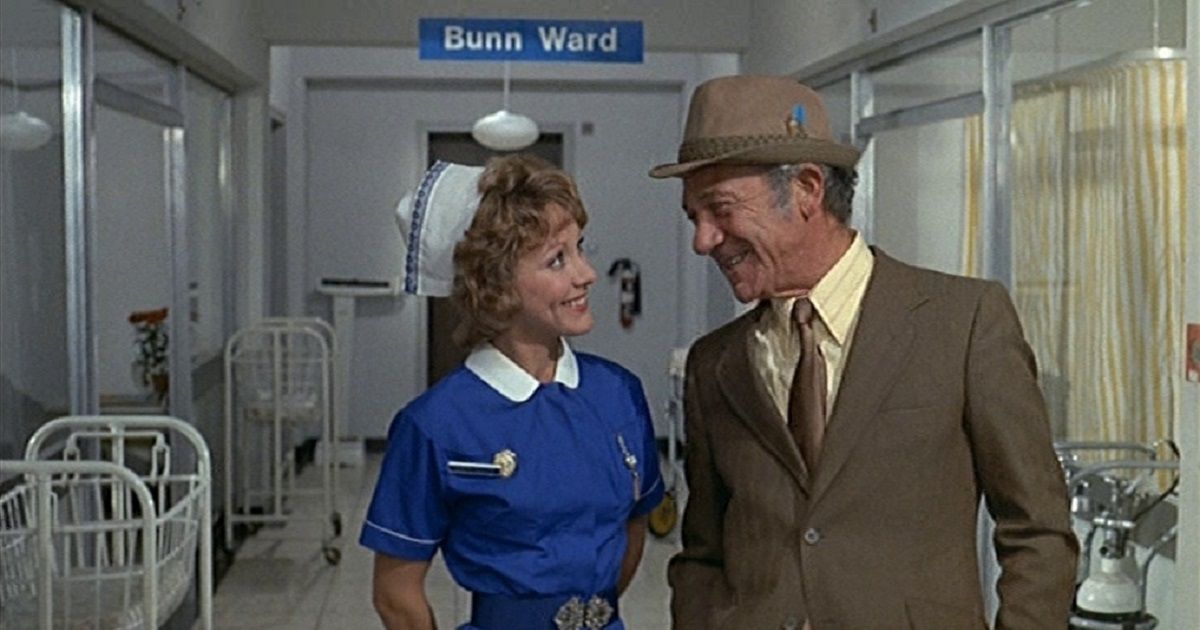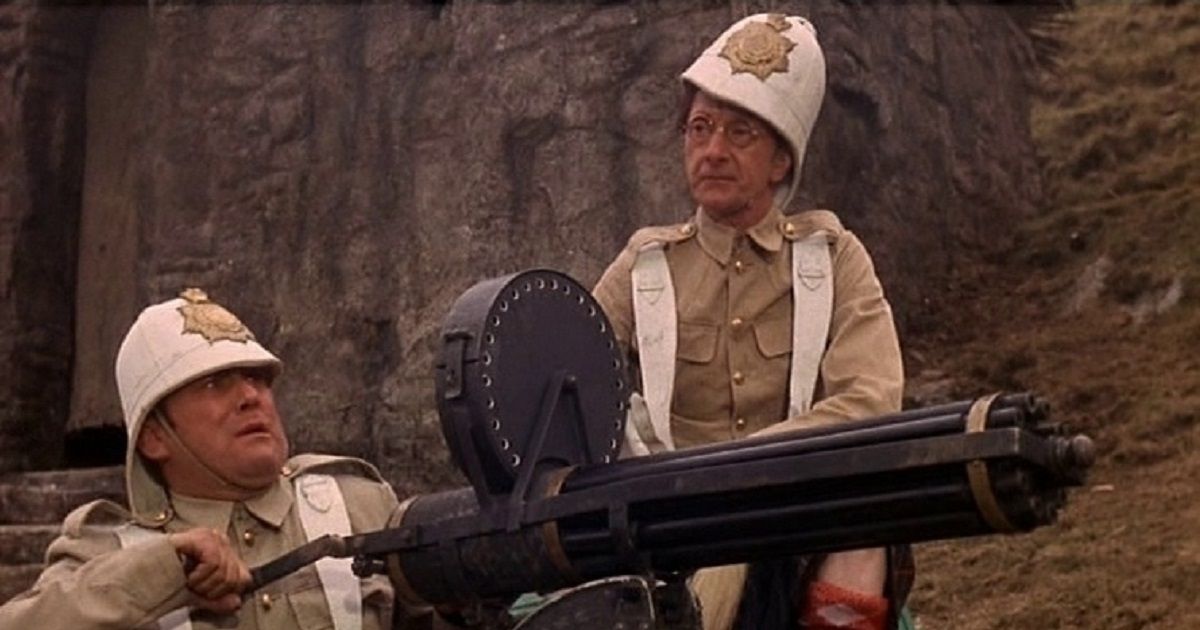A staple of British cinema during the 1970s and 1970s, the Carry On film franchise's formula hardly made for Oscar-worthy film-making. Nor did the series travel well, doing the bulk of its box-office in the U.K. The films featured a bawdy mixture of slapstick comedy, lascivious young ladies getting ogled by middle-aged lotharios, and jokes revolving around gender roles, with a heap of cheeky, innuendo-laden one-liners thrown in, each one usually made in less than six weeks on a shoestring budget.
However, there was no arguing with success. After the unexpectedly good returns of the first film, Carry On Sergeant, at the box office in 1958, the makers churned out further installments once and sometimes twice a year, usually with the same core group of cast members, making household names of Sid James, Kenneth Williams, Joan Sims, future Doctor Who's William Hartnell and Jon Pertwee, and attracting many established stars into the bargain (the legendary American comic actor Phil Silvers even played the lead in Carry On... Follow That Camel (1967)). Over the next 20 years, no less than 30 films were produced, including countless spoofs of Hollywood hits, such as Carry On Spying (a send-up of Sean Connery-era James Bond films), Carry On Cowboy, and -- in 1964, the year after Elizabeth Taylor and Richard Burton's smoldering performances in Cleopatra -- Carry On Cleo.
Although Carry On Columbus -- a 1992 revival sending up the earnest Christopher Columbus biopics released that year, such as Ridley Scott's 1492: Conquest of Paradise -- was a box office bomb, the enduring appeal of the series is shown by the fact that a reboot was under discussion for over a decade before the new productions were announced in 2020.
It’s Time for a Comeback
The farce, usually a comedy of manners, was once an ever-present force in British TV and film. Monty Python's John Cleese and Connie Booth pushed the format to its limits in the sitcom Fawlty Towers (1975-79), about a constantly on-edge hotel manager and his overbearing wife and their attempts to make their gently failing hotel business turn a profit. Rowan Atkinson's Johnny English franchise, which placed the eponymous spy in a series of preposterous scrapes, was another addition to the genre.
With their ludicrous situations and stereotypical characters -- men are invariably lewd and loud or meek weaklings, and women either blonde bombshells or matronly prudes -- the Carry On films plowed the same furrow. The best example is Carry On Up The Khyber (1968), set in British India in the Victorian era, with Sid James hamming it up as British colonial official Sir Sidney Ruff-Diamond and Angela Douglas as the Princess Jelhi. The movie's send-up of British imperialism -- the final scene involves a dinner party during which the guests eat, entirely oblivious to the fact the building is being shelled by Indian forces -- still stands as a sharp commentary on the phlegmatic, show-must-go-on British character. It shows that at its height, the franchise was capable of mixing the lowest-common-denominator innuendo with cutting satire. The film has even been the subject of academic study as an example of working-class-driven cinema.
How Will the Movies Fare in a PC World?
Yet while there was much to like about the Carry On movies, there was much to dislike. Carry On Up The Khyber's racial politics left much to be desired, with white actor Bernard Bresslaw appearing in brownface as a tribal leader in a practice that was at the time already well on the way to becoming socially unacceptable, and portrayals of non-British characters in the series invariably pandered to racial stereotypes.
The franchise's sexual and gender politics were similarly problematic. Much mileage was gotten out of the fact that series regular Kenneth Williams was gay in real life, and double entendres riffing on homosexuality as unmanly were frequent. In the same way, the gap between nudge-nudge-wink-wink humor revolving around the battle of the sexes and simple sexism, though scrupulously observed in the earlier films, became blurred as the 1960s progressed, and each film tried in vain to be bawdier and more risqué than the last.
Carry On Camping (1969) featured Barbara Windsor going topless (albeit for a split second), while the series' final installment, Carry On Emmanuelle (1978), was a sexist mess. It was a tired attempt to lampoon the soft-core adult films such as Emmanuelle that were generating column inches in the newspapers.
It remains to be seen how the franchise's reboot will approach these issues. Production had been due to begin in 2020 but was postponed due to the COVID-19 pandemic, with the release date subsequently pushed back to 2022.



